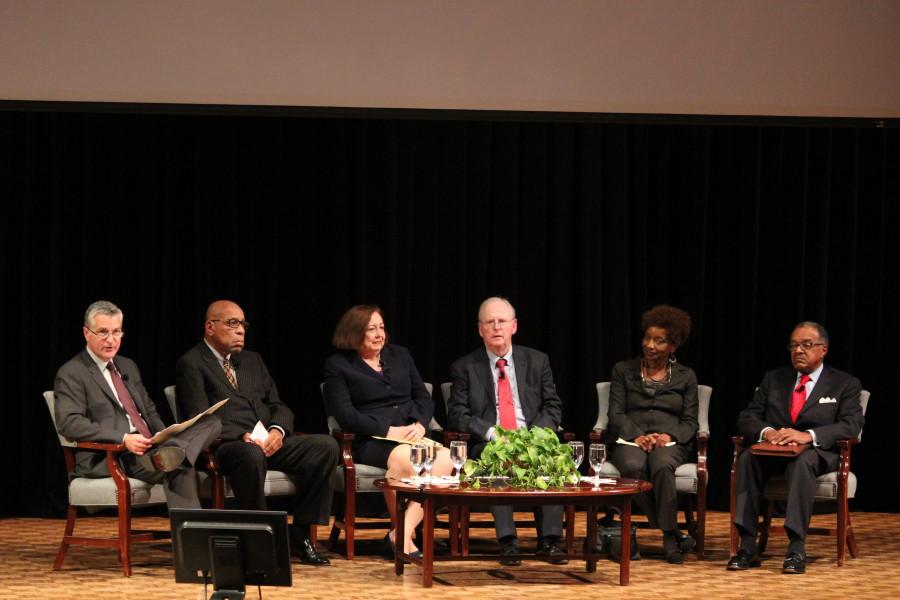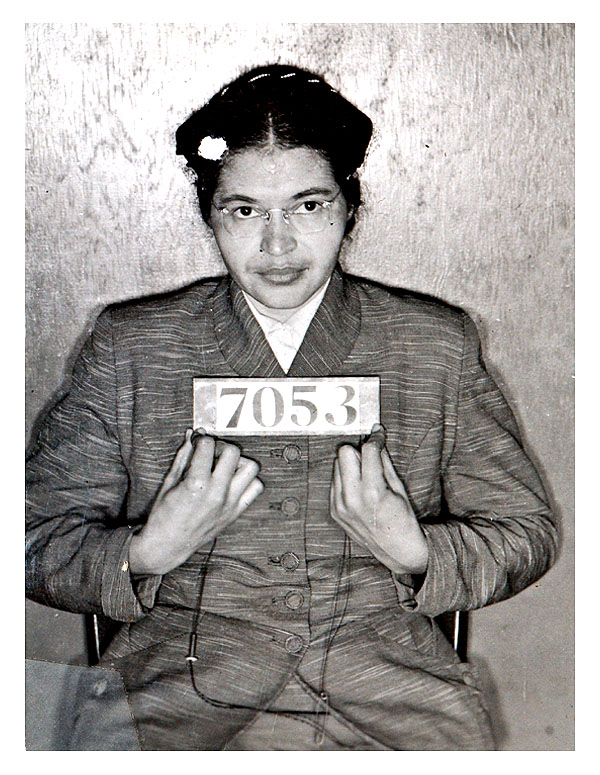Marquette revisited its unique history with the Civil Rights Movement Monday afternoon at the Presidential Inauguration Academic Symposium.
The Weasler Auditorium was packed as distinguished law fellow Mike Gousha introduced the five panelists, all of who played a direct role in the creation of Marquette’s Educational Opportunity Program in 1969.
The EOP is an academic program that works to enable low-income and first-generation college students by helping them attain higher education.
Dr. Arnold Mitchem, president emeritus of the Council for Opportunity in Education who founded the concept of “first-generation” students, was among the panelists at the event. He said he was proud that University President Michael Lovell continued a focus on social justice issues like educational equality.
“Milwaukee is a troubled city — achievement gaps on the black side are off the charts,” Mitchem said at the event. “(Lovell) putting this panel together shows where his heart is.”
Mitchem, who became Marquette’s first EOP director before joining the COE, initially thought equal opportunity was destined for failure.
“I thought it was a fool’s errand,” he said. Eventually, he said, the combination of student energy and Jesuit morality convinced him to take the position.
One of those Jesuits was T. Michael Bolger, another panelist at the event. Bolger later became known as one of Milwaukee’s most prominent civil rights leaders, which he described as a great challenge. He also said he often faced opposition from both in and out of Marquette.
“The hate that was poured out — the venom — from the people that watched us march was palpable,” Bolger said. “But we persevered.”
The official stance for the university prior to the founding of the EOP was to adhere to the status quo. Only a select few black students were admitted to the university, and when they all decided to drop out in protest, Marquette began to take notice.
Students staged sit-in protests at certain locations on campus, and many were arrested for the demonstrations. Select members of Marquette’s theology department — which at the time was considered one of the best in the nation — also threatened to leave the school if the students’ demands weren’t met.
Marquette listened and decided to establish the EOP.
This video was posted on Marquette’s website on the events:
The symposium began with a short video detailing the events that led up to the creation of the EOP and examined the experiences of several EOP students currently studying at Marquette.
Gousha then asked panelists about their experiences as key players in the movement towards equality in education.
“It took the courage of the students to get the big institution rolling,” Bolger said, “but once it got going, it was hard to stop.”
Eventually Marquette’s unique model of educational equality went national, with the creation of the Council for Opportunity in Education in 1981.


